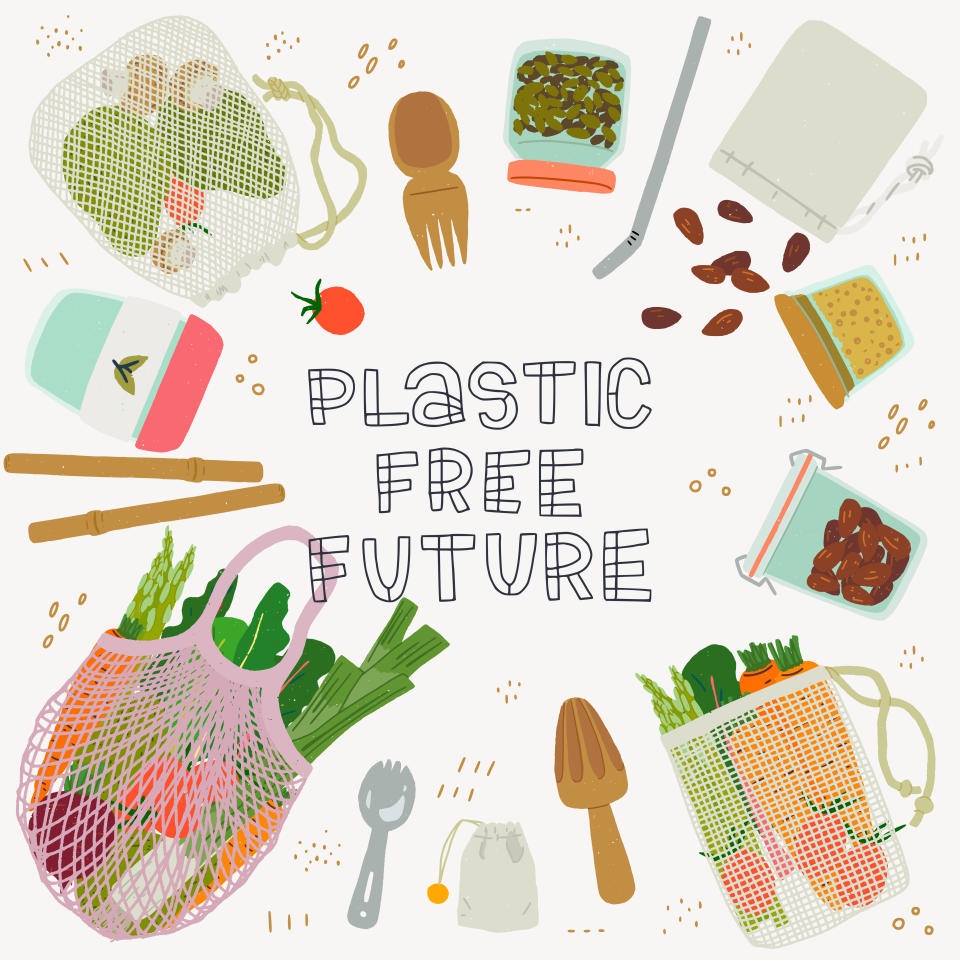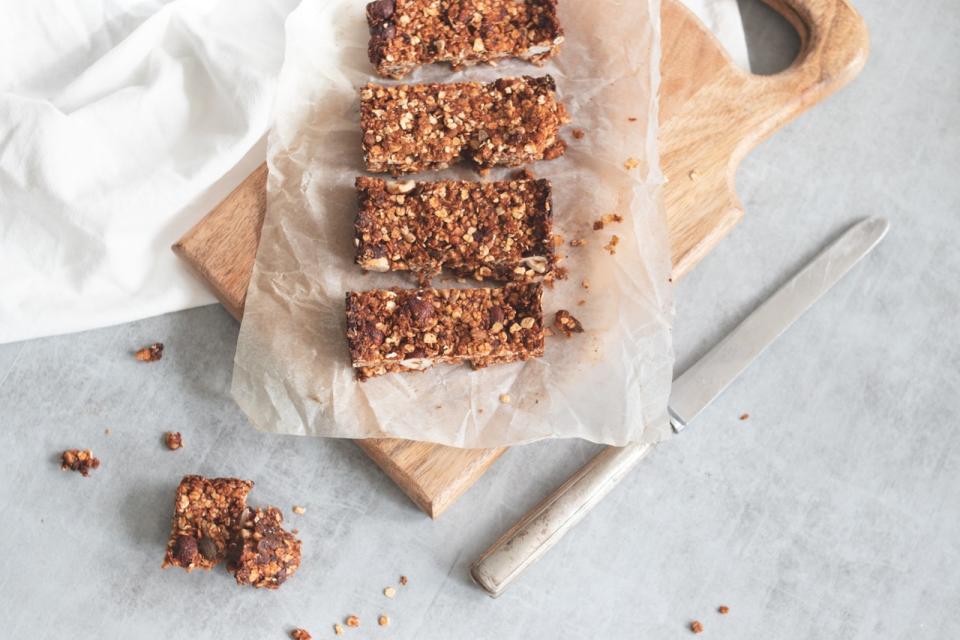19 simple ways to live a plastic-free life at home

With the world taking baby steps to move towards sustainable living and do their bits to save the environment, one major thing that we all should do is try to live a plastic-free life. It’s not surprising that most of the things in our lives is made from plastic and plastic-blends.
We all know the harmful effects of plastic on the environment and planet, many of us have seen documentaries and watched videos and read articles about them. While the task of giving up plastic completely is overwhelming, it’s the little steps that you can implement in your life that can help you live an eco-friendly and a sustainable lifestyle.
Start with these baby steps and encourage your friends and family to do the same, as this is the least we can do to save our planet.
1. Use non-plastic dishes: Most of us have grown up eating in steel plates, which last a lifetime. Invest in some glass, ceramic and clay plates, there are a number of variety available now, in various prints and colours, which are also microwave-friendly.
2. Get non-plastic food storage containers: Ditch your plastic Tupperwares and get steel or glass containers to store food items in your kitchen. Not only do they last longer but are also aesthetically pleasing.
3. Have water from steel or glass water bottles: Store your water in colourful glass bottles, but make sure that the cap is made of brass and not plastic. If you have kids at home or if you think you are clumsy, then get steel bottles. Alternatively, store water in clay pots and copper jugs to for added natural minerals in your water.
4. Make detergents at home: Washing powders and liquids have very strong chemicals and come in plastic bottles which are meant to be thrown once the solution is over. There are numerous recipes for this, you can just search it, but don’t get overwhelmed by it. They are simple and easy-to-make with three to four ingredients and are not harmful for your skin, clothes and utensils.
5. Reusable grocery bags: Say no to single use plastic bags and carry a cloth bag with you everywhere you go. You can even make it yourself with scraps of fabrics and old clothes.

6. Use metal straws: Ditch those plastic straws you get everywhere at cafes and restaurants, and carry a metal, glass or bamboo one with you.
7. Shop from local farmers markets: Minimise the amount of food orders you do online. Instead, go to your local grocer, get some fresh fruits and veggies and make a nice simple meal for yourself and your family. It is healthy and will save you a lot of money as well.
8. Use cloth rags to clean utensils and furniture: The brushes and sponges we use to clean are made from plastic fibres. A better bet is to use your old clothes or bed-sheets, cut them in pieces of a square and use them to clean your home. They can be re-used for a longer amount of time and are re-cycled as well.
9. Switch to bar soap instead of liquid: Body washes and liquid detergents have many strong chemicals which are harmful for our skin and they also come in plastic bottles. People sometimes worry that sharing a bar of soap is less sanitary than sharing a bottle of liquid soap. But think again, the bar soap gets rinsed off every time you use it.
10. Avoid buying non-stick cookware: Non-stick cookware have teflon coating which when it comes off can lead to toxic fumes and harm your kidney and liver. Cast iron, steel, aluminum, ceramic and clay are some of the most sustainable alternatives.

11. Make your own snacks: Most snacks come in plastic packaging, and most of them are unhealthy. Why not make them yourself at home? From something as simple as roasted dry-fruits to peanut-butter oats bar, there are plenty of new recipes for healthy snacks that you can find online.
12. Use paper or biodegradable garbage bags: You can now get garbage bags, made from corn starch, that are compostable and biodegradable. Alternatively you can use waste paper or old newspapers and turn then into a garbage bag.
13. If you have kids, get toys that are made of wood: Make it a point to teach your kids about the environment, starting with their toys. From a pile of plastic toys that are mass produced, choose wooden toys, especially those that are handmade and handcrafted. Go to handicraft fairs where you can pick up wooden toys from artisans across the country.
14. Use handkerchiefs and napkins instead of tissue papers: Use tablecloths and napkins instead of tissue papers. They can be easily washed and reused, unlike tissues. Keep a handkerchief in your bag instead of a pack of tissues.

15. Avoid buying new plastic clothing: Choose what you wear wisely. A fabrics like polyester is a synthetic petroleum-based fibre, and is therefore a non-renewable carbon-intensive resource. Nearly 70 million barrels of oil are used each year to make polyester around the world, which is now the most commonly used fiber in making clothes. But it takes more than 200 years to decompose. Do you research on textiles and fabrics before buying new clothes.
16. Subscribe to e-bills to avoid the use of paper and plastic envelopes: A lot of the bills come in an envelope, especially bank statements and notices, which is made of plastic or has a bit of plastic attached which the name and address is. These invariably end up in your trash can, hence, subscribe to e-bills to avoid this and save paper.
17. Get wooden or metal toiletries, like wooden combs and toothbrushes: Switch to wooden combs instead of plastic. Use wooden toothbrushes instead of plastic ones. Buy your toiletries from brands that are sustainable and local, that have less chemicals and are packaged in glass or metal bottles.
18. Reuse and up-cycle: Don’t wear that old white shirt that has food stains on it? Turn it into a table cloth or a kitchen rag. Have an old bed sheet that you don’t like anymore? Turn it into a tote bag for groceries or a cover to keep your saris and Indian outfits in.
19. Order less: While sitting on your couch and buying things online is convenient, getting things delivered to you takes up a lot of resources in the form of fuel, labour and of course, plastic. Make sure that you don’t buy things online just aimlessly because you can. You don’t need that white t-shirt from Zara and H&M when you have three of them in your closet right now. You don’t need a new mug when you have a collection sitting on your kitchen cabinet. You don’t need a new book, especially when you have so many unread ones waiting on your bookshelf
Be responsible, be smart and be conscious of your habits.

 Yahoo Finance
Yahoo Finance 